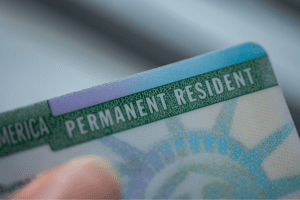Home » Visa Programs » US EB-5 Program
What is the US EB-5 Visa Program?
The US EB-5 (employment-based, 5th preference) Immigrant Investor Visa Program, is a US government immigration federal program that was launched in 1990 and offers a pathway for investors that provides US permanent residency through investment. In 1993, the government created a pilot program called the EB-5 Regional Center Program, which allowed groups of investors to passively pool their investments into single projects for a US green card. Under the US EB-5 immigration investor visa Program, the investor, the investor’s spouse, and children under 21 years of age (at the time the application is submitted) must obtain a US EB-5 green card and permanent residency and citizenship. The EB-5 Visa applicant will invest a refundable amount of USD $800,000 in an approved EB-5 Regional Center project.
A Regional Center is an administrative body that has been certified by the US government to oversee EB-5 Visa eligible projects and take on foreign EB-5 investors. The Regional Center also ensures that the project creates 10 full-time jobs for US permanent residents or citizens on behalf of each EB-5 investor.
Step Global has been privileged to be the only GCC consulting firm associated with the top five regional centers in the EB-5 industry. Thus, conveniently providing investors from this region with access to all the leading EB-5 immigrant investor visa programs in one place.

Oldest EB-5 advisory team in the region

Associated with the leading top 5 Regional Centers

Highest EB-5 approval rate in the region
Benefits of the US EB-5 Immigrant Visa Program
What is the Required Investment Amount for an EB-5 Visa

EB-5 Visa Eligibility Criteria:
Two basic criteria must be met to receive an EB-5 visa.
According to USCIS guidelines, the minimum investment amount for an EB-5 Visa applicant is USD $800,000 in an approved EB-5 project (Targeted Employment Area (TEA), which may fall into any of these categories:
- Rural
- Infrastructure
Any project outside the above-reserved categories requires an investment of USD $1,050,000.
The applicant’s funds will be used by the project to create 10 full-time jobs for US permanent residents or citizens.
The funds must be from a lawful source of income.
Procedures and time frame for obtaining an EB5 visa for USA residence & Citizenship by investment
The EB-5 visa program in the USA allows foreign investors to obtain US citizenship and residence by investing a minimum amount in qualifying projects. The typical process involves filing Form I-526, awaiting USCIS approval, and upon approval, either adjusting status or obtaining an immigrant visa. The time frame varies, but processing can take several years. It involves investment, job creation, and meeting program requirements. Consult legal professionals for the latest updates and personalized advice.
EB-5 Immigrant Investor Visa Program Application Process

Step 1: Select an Immigration Attorney who has Experience with the EB-5 Visa

Step 2: Compilation of I-526E petition and project investment

Step 3: Become a Conditional Permanent Resident

Step 4: Fill out the I-829 for an unconditional green card
EB-Regional Centers
EB-5 Regional Centers play a crucial role in the EB-5 visa program in the USA. These centers, designated by the U.S. Citizenship and Immigration Services (USCIS), facilitate foreign investor participation in job-creating projects. Investors can choose to invest in approved regional center projects rather than directly managing a business. The Regional Center program allows for a more passive investment approach, with the potential for indirect job creation through economic impact. This option offers flexibility to investors, as it enables them to meet the EB-5 visa program requirements while contributing to regional economic development. Choosing a reputable EB-5 Regional Center is essential for a successful and compliant immigration process under the EB-5 visa program.
US Investor Visa: EB-5 Immigration Visa Cost
The EB-5 Immigration Investor Visa program typically costs $1,050,000 as a minimum investment amount. However, to prioritise growth and stimulate job creation in areas that need it most, there is now a rural EB-5 project category, within which the minimum investment is $800,000. However, this lower fee is only in Targeted Employment Areas (TEAs). Applicants are also expected to cover filing fees, legal expenses, and other associated costs (which can vary on a case-by-case basis); however, these don’t technically fall under the core EB-5 investment amount.
Capital Investment
The capital investment required under the U.S. EB-5 Visa Program can vary, but the minimum cost is $800,000, specifically in Targeted Employment Areas (TEAs) where the economy and residents need capital and job creation respectively the most. In all other areas, the minimum investment amount sits at $1,050,000.
Job Creation
Another important factor in the EB-5 Visa program application process is the job-creation requirements it must satisfy.
An EB-5 application must create or preserve at least ten full-time jobs for U.S. residents within two years of the applicant receiving residency. This is a non-negotiable part of the EB-5 application, and without job creation, it will be impossible to be successful.
F-1 Student Visa Vs. EB-5 Visa Program
The US EB-5 visa program offers a solution to most of the concerns faced by international students seeking to study in the United States. Here are some of the most compelling reasons families from the UAE and across the GCC choose the EB-5 visa program over other US immigration routes such as the F-1 visa or H-1B visa.
Lower Tuition Rates
It is well known that the tuition fees for international students in US universities can be exorbitantly high. US public universities offer varying tuition rates for in-state, out-of-state, and international students under an F-1 visa. Unfortunately, international students with an F-1 visa application pay on average three times more than domestic students. However, obtaining a green card through the EB-5 visa program and becoming a US permanent resident, can be a way for students to achieve domestic tuition rates. These savings can amount to more than $35,000 per year, depending on the university, which can be particularly beneficial for families with multiple children or for children who will go on to do multiple degrees in the US.
Access to Financial Aid and Scholarships
Every foreign applicant to a US university is competing with students across the globe for a limited number of scholarships available. However, with an EB-5 green card, students are eligible to apply for a larger number of scholarships and financial aid offered only to US residents, thus increasing the probability of being selected. The various states and the US government offer grants and zero-interest loans which are not available to international students but are accessible only to Green Card holders and US citizens.
No Job Limitation During Education
International students may face difficulties in finding positions both off-campus and on-campus during their education, whether paid or unpaid. F-1 students are limited in the number of hours they may work during their education, are sometimes limited to employment only on campus, and can many times only apply for unpaid positions.
Green card holders and US citizens are not subject to such restrictions and can work freely, thereby, allowing them to enter a greater employment pool, and also avail themselves of useful work experience opportunities that could help in obtaining employment post-graduation. For example, many of the top law firms in the US will only hire students who have worked for them summer upon summer as an intern.
No Sponsorship Required
One of the biggest advantages of a green card via the EB-5 visa program, is that it removes all the stress of securing an H-1B work visa and employment after graduation. Many F-1 students visa become increasingly disappointed and frustrated when they find they are forced to leave the US after their studies because they are unable to secure an employer to sponsor them or they are not selected in the H1-B lottery.

Pathway to a US Green Card and US Citizenship
The pathway to a US green card and US citizenship typically involves several steps. Initially, individuals can enter the U.S. through family-sponsored, employment-based, refugee/asylee, or diversity visa programs. Obtaining a green card is the next step, either through employment sponsorship, family ties, refugee/asylee status, or the Diversity Visa Lottery. After holding a Green Card for a specified period, usually five years (or three years for spouses of U.S. citizens), individuals can apply for U.S. citizenship through naturalization. Requirements include continuous residence, physical presence, good moral character, and passing a citizenship test.
EB-5 FAQs
No, to date there are no language requirements to apply to the EB-5 investor visa program.
No. There is no minimum age restrictions for the EB-5 investor program except that the investor must be at least 18 years old, enter into legally binding contracts, and obtain conditional permanent residency and citizenship.
The transfer of your capital is made once the legal team has completed the compilation of your I-526E application and immediately prior to its submission with USCIS. The confirmation of your transfer will be included in your application. However, Step Global, a registered immigration and visa consultant in Dubai, may ask for partial financing and payment plans for our clients depending on the project. This provides investors the flexibility to enter the application queue immediately with a deposit while continuing to fund the total investment in installments over time through a payment plan.
EB-5 investments must be considered at risk for the duration of the investor’s two-year conditional resident status (us green card), and they will receive their funds back. Should any or all parts of your investment be returned, it can only happen after the sustainment period and/or I-829 petition is filed to ensure to the US government that your funds remain invested. The terms of repayment should be specified in writing within the project offering documents and legal contracts signed between the Regional Centers, developers, and investors at the time of the initial investment.
If your application I-526 petition is denied, the capital investment that was placed in the U.S. escrow account will be returned to you within a commercially reasonable period of time. The terms of return on capital investment should be specified in writing within the project offering documents and legal contracts signed between the regional centers, developers, and investors at the time of the initial investment. Any sponsorship, legal, and consulting fees will be deemed non-refundable upon payment.
Yes, a student who is obtaining an EB-5 green card and becoming a U.S. permanent resident is considered a domestic student and thus pays significantly less for college and university tuition than international students. For instance, undergraduate residents at the top public university in 2022 – the University of California – Los Angeles – paid approximately $13,268 in annual tuition, compared to approximately $43,022 for international students. This means that you can save approximately $30,000 on a yearly basis per child. A student holding a U.S. green card and willing to obtain a master’s degree will save up to $150,000 within five years. This benefit is especially helpful for families who choose to send multiple children to the US for post-secondary education or children who are obtaining multiple degrees.
Yes, you can travel in and out of the US while the EB-5 application is in the pending process if you have a valid visitor visa. Once your I-526 petition is approved and a conditional green card is issued, you can live in the US while awaiting the approval of your I-829 petition for you to become a US permanent resident.
As of March 15, 2022, the US government also introduced the concept of adjustment of status (AOS) Concurrent filing for EB-5 applicants. This means that those already in the US on any legal visa status can apply to adjust their status from within the US while waiting for their EB-5 application to be processed. Along with this submission, they can submit for an employment authorization card and travel document. Within months, the applicant will have the ability to legally live and work in the US without employer sponsorship while they wait for their EB-5 green card application to processed and their visa to be obtained.
Yes, EB-5 investors with pending I-829 petitions may apply for U.S. citizenship if they meet all other requirements. In order to apply for US citizenship, you must stay in the US for two and a half years out of five years as a permanent resident/green card holder. This is easy for students who are already studying in the US.
Step Global is an immigration consultancy and advisory firm based in Dubai specializing in facilitating the Canada Startup Visa Program and the Portugal Golden Visa Program, which grant permanent residency and citizenship in Canada and Portugal, respectively.
Dubai residents may choose to invest in the US EB-5 Investor Visa route if they’re looking to migrate to the United States to access new job opportunities. Many Dubai Residents also apply to the EB-5 Investor visa to unlock educational benefits for their children studying in the United States such as lower tuition fees, access to scholarships and limited program spots, and overcome job limitations during education. The EB-5 Visa Program also allows F-1 international students who have graduated from a US university and were unable to secure an H1-B visa to remain in the US and work without the need for employer sponsorship.
In 2023, the industries or businesses that qualify for the EB-5 visa will be generally diverse. While there are no strict industry restrictions, it’s important to meet the EB-5 investment program’s criteria for job creation and capital investment. It’s advisable to consult with the Step Global immigration professionals to ensure your business aligns with the program’s guidelines. For those who are not planning to establish a business in the US, they can select and invest in one of the government-approved projects which will be presented to applicants by the Step Global lawyers directly.
Yes, you can immigrate to the US without a job offer by applying to the U.S. EB-5 Immigrant Investor Program. The EB-5 Immigrant Investor Program is a citizenship-by-investment program that requires a minimum investment of USD 800,000 (refundable after a few years) in exchange for a green card.
Clients & Partners testimonials

Stars, Stripes, and Fun Facts about the USA: A Journey through American History, Culture, and Immigration
Table of Contents The United States is a diverse and dynamic country that boasts a

Navigating the Path to Permanent Residency: Safeguarding Your Journey Through the U.S. Work Visa Application Process
Table of Contents Introduction The journey toward obtaining employment authorization in the United States is

USA vs. Canada: Which Country Is the Best Place to Immigrate?
Table of Contents When individuals from the MENA region look at potential immigration options, Canada
The Step Global immigration lawyers are available to answer your questions. Contact us today to arrange a consultation.


